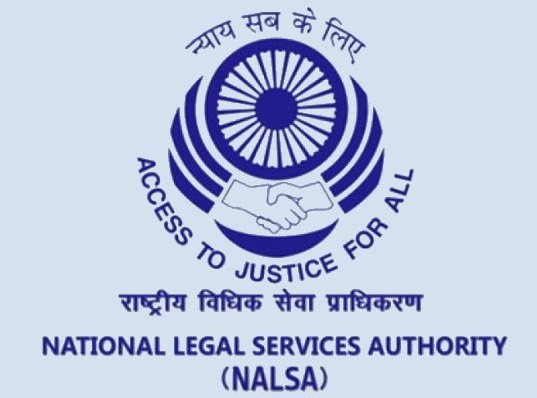AWIP, Indian Polity & The Constitution of India
Q.2. Assess the role of National Legal Services Authority (NALSA) in rendering free legal aid in India.
The National Legal Services Authority (NALSA) is a statutory body which was established under the Legal Services Authorities Act, 1987 with the aim of providing free legal services to the weaker sections of Indian society. NALSA’s primary objective is to ensure that justice is accessible to all, regardless of economic or other disabilities. It strives to promote an inclusive legal system that upholds fairness and meaningful justice. The Chief Justice of India serves as the Patron-in-Chief of NALSA, emphasizing its importance within the legal framework. NALSA operates at different levels:
-
- State Legal Services Authority: In each state, a State Legal Services Authority is constituted to implement NALSA’s policies and directions. The Chief Justice of the respective High Court heads this authority.
- District Legal Services Authority: At the district level, these authorities work to provide legal services and conduct Lok Adalats (people’s courts) for dispute resolution.
Legal Aid Movement: The concept of legal aid in India traces back to constitutional provisions. Article 39A mandates that the state ensures equal opportunities for securing justice, including free legal aid for those in need. NALSA plays a crucial role in fulfilling this constitutional pledge. Here’s a concise assessment of the National Legal Services Authority (NALSA) and its role in providing free legal aid in India:
- Legal Assistance: NALSA ensures that legal aid is accessible to marginalized and economically disadvantaged individuals. It maintains a panel of lawyers who offer pro bono services to those in need. This includes representation in courts, legal advice, and drafting of legal documents.
- Awareness Programs: NALSA conducts legal literacy campaigns to educate people about their rights and entitlements. By spreading awareness, it empowers citizens to seek legal assistance when required.
- Lok Adalats: NALSA organizes Lok Adalats (people’s courts) where disputes are resolved amicably through mediation and conciliation. These forums promote speedy justice and reduce the burden on formal courts.
- Mobile Legal Aid Units: To reach underserved populations, NALSA operates Mobile Legal Aid Units in rural and remote areas. These units provide legal aid at the doorstep of those who cannot travel to urban centers.
In summary, NALSA plays a pivotal role in bridging the gap between the legal system and vulnerable sections of society. It ensures equal access to justice, regardless of economic or other disabilities.


